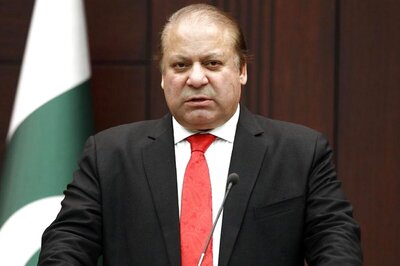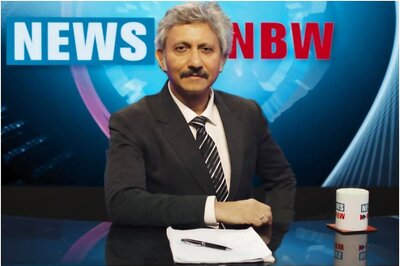
views
Washington: The United States wants a well co-ordinate international effort on Libya, but reserves its right to take unilateral steps, a top Obama aide has said.
"It is our strong preference, in this situation and many others, that we act together with our international partners, because, collectively, we are stronger than we are individually in cases like this," White House Press Secretary Jay Carney told reporters.
"But it is obviously the case that we always reserve the right to act, NATO does, rather, as the US does, to act on its own," Carney said in response to a question.
Top national security officials met President Barack Obama at the White House during the day to review the current situation in Libya and discuss on the future course of action.
"They are evaluating the various options in the situation in Libya and the broader region, and the various options that we have taken and are implementing, and others that remain on the table," Carney said, adding no decision was anticipated out of this meeting.
The official said the US was working with the United Nations, NATO and all its partners on variety of options.
"The option of declaring no-fly zone is being actively considered," Carney added.
Carney said the statements and the actions that have been taken by this President in the three weeks since this circumstance began in Libya demonstrate the moral outrage that they feel at the actions taken by the Libyan regime against its people.
"So, clearly there is a moral component to not just the actions of the US and its President but the actions of the entire international community, and its swift and coordinated reaction to and response to the despicable behaviour of the Libyan regime," Carney noted.
The White House spokesman reiterated that Muammar Qaddafi needs to leave, needs to step down.
"He has lost the legitimacy to rule in the eyes of his people and in the eyes of the world. I don't think you can be any clearer than that," Carney asserted.
Responding to a question, Carney said the US believes that the arms embargo by the UN Security Council contains within it the flexibility to allow for a decision to arm the opposition, if that decision were made.
Carney argued the Obama Administration has been working with a sense of urgency and speed with regard to Libya.
"What has been done in remarkable time. We have imposed very strong sanctions, including freezing over USD 30 billion of the Qaddafi regime's assets. We have coordinated also with the UN for additional sanctions with our European partners and through the UN," Carney said.
"We have led the way in initiating steps through the UN to make sure that those members of the Qaddafi regime who are responsible for gross violations of human rights and the use of violence against the Libyan people will be held accountable. That includes a UN Security Council referral of the Qaddafi regime to the International Criminal Court," Carney added.
Carney said, "We are engaged in a highly swift and coordinated effort to provide humanitarian assistance and we have also, through a variety of channels, reached out to the opposition to discuss what their goals are and what their situation is.
"We have also done military contingency planning. We have talked about positioning resources in the region for contingencies that might occur of all sorts," Carney added.
The US, he said was in the process of reviewing a variety of options, but there is no timetable for decisions on them.
The actions we have taken have been dramatic, and we are implementing them in a way that we hope they will have an effect, Carney said.
"We are also using the full spectrum of our intelligence resources to ensure that we are monitoring what's happening in Libya and in a way that will enable the international community to hold responsible those members of the regime who are perpetrating violations of human rights,"
Carney said.
"So this is an ongoing process. The review continues, the options are refined and reviewed and considered, and obviously, we want to work with our international partners. We feel it's very important so that any action we take be done in a coordinated way with our international partners, because that is a powerful message to the people of Libya, to the Libyan regime, and to the people around the region.
"This is not about the United States; it is not about Western powers, European powers. It s about the people of the region, and in this case the people of Libya," Carney said.




















Comments
0 comment